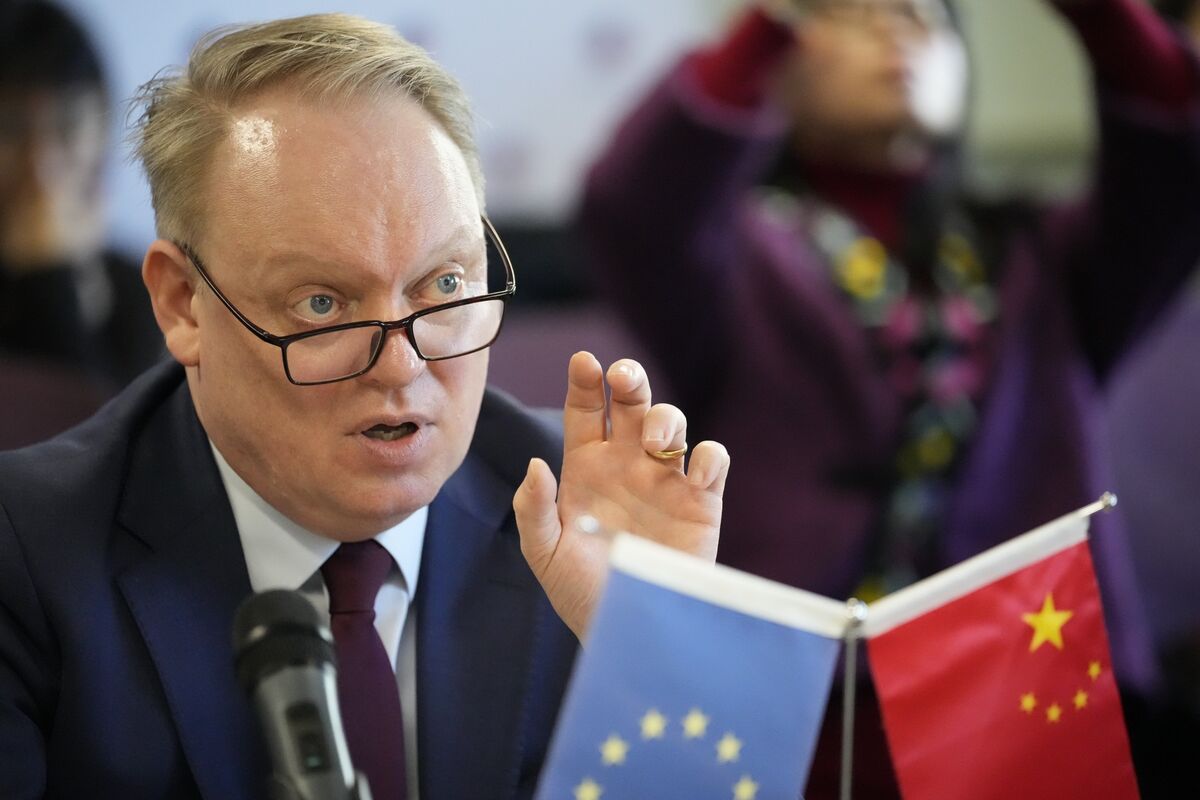EU Urges China: Overhaul Industrial Policy
The European Union is stepping up pressure on China, urging a significant overhaul of its industrial policies. This call comes amidst growing concerns about unfair competition, market distortions, and the impact on European businesses. The EU's concerns are multifaceted, encompassing issues ranging from state subsidies to intellectual property rights and market access. This article delves into the specifics of the EU's demands, the underlying tensions, and the potential implications for global trade.
Understanding the EU's Concerns
The EU's concerns about China's industrial policies are not new, but they've intensified in recent years. The core issue revolves around what the EU perceives as an uneven playing field. China's extensive use of state subsidies, often directed towards strategic sectors, creates an advantage for domestic companies that European businesses struggle to match. This isn't simply about financial aid; it's about a system that allows Chinese firms to operate with significantly reduced risk and a greater capacity for long-term investment, even if those investments aren't immediately profitable.
Key Grievances:
-
State-Owned Enterprises (SOEs): The dominance of SOEs in key sectors gives them an inherent advantage, often backed by government support and preferential treatment. This can lead to suppressed competition and limit market access for foreign companies.
-
Subsidies and Financial Support: The scale and nature of subsidies provided to Chinese companies are a major point of contention. These subsidies aren't always transparent, making it difficult for EU businesses to compete fairly.
-
Intellectual Property Rights (IPR): The EU expresses serious concerns about the protection of IPR in China. The theft or forced technology transfer from foreign companies remains a significant barrier to investment and innovation.
-
Market Access: While China has opened its markets in some areas, significant barriers remain, particularly in sectors considered strategically important. This limits the ability of EU companies to expand their operations and compete effectively.
-
Overcapacity: Certain industries in China suffer from significant overcapacity, leading to dumping of goods in global markets at artificially low prices, undercutting European producers.
The EU's Proposed Solutions
The EU isn't just voicing complaints; it's actively seeking solutions. Their proposals generally aim to create a more level playing field and foster a fairer trading environment. This involves:
-
Negotiations and Dialogue: The EU is engaging in bilateral talks with China, aiming to address specific concerns and reach mutually beneficial agreements.
-
WTO Dispute Settlement: The EU has used the World Trade Organization (WTO) dispute settlement mechanism to challenge specific Chinese policies it deems to be in violation of international trade rules.
-
Trade Defense Instruments: The EU is increasingly using trade defense measures, such as anti-dumping and countervailing duties, to protect its industries from unfair competition.
-
Strategic Partnerships: While maintaining a firm stance on unfair practices, the EU also seeks to develop strategic partnerships with China in areas of mutual interest, recognizing the importance of collaboration on global issues.
The Broader Geopolitical Context
The EU's actions are not solely driven by economic concerns. The relationship between the EU and China is increasingly complex, influenced by geopolitical factors such as:
-
Technological Competition: The rivalry between the EU and China in crucial technological sectors, such as artificial intelligence and 5G, adds another layer of complexity to the trade relationship.
-
Human Rights: Concerns about human rights in China also influence the EU's approach to the relationship, leading to calls for greater accountability.
-
Global Leadership: Both the EU and China are vying for greater influence on the global stage, and their economic relationship reflects this competition.
Conclusion: A Long Road Ahead
The EU's call for an overhaul of China's industrial policies represents a significant challenge to the existing global trade order. Resolving these issues will require sustained dialogue, commitment to fair practices, and a willingness to compromise on both sides. The road ahead is likely to be long and complex, but the outcome will have significant implications for global trade and the future of the EU-China relationship. The success of these efforts will depend not only on the willingness of both sides to negotiate but also on the development of a more robust and transparent global regulatory framework that addresses the challenges posed by state-led industrial policies. The long-term stability of the global economy hinges on finding solutions that promote fair competition and sustainable growth for all.
